3-Things Weekly - The Wallet Edition - Rainbow, Metamask, and Coinbase Wallet - December 5th, 2021
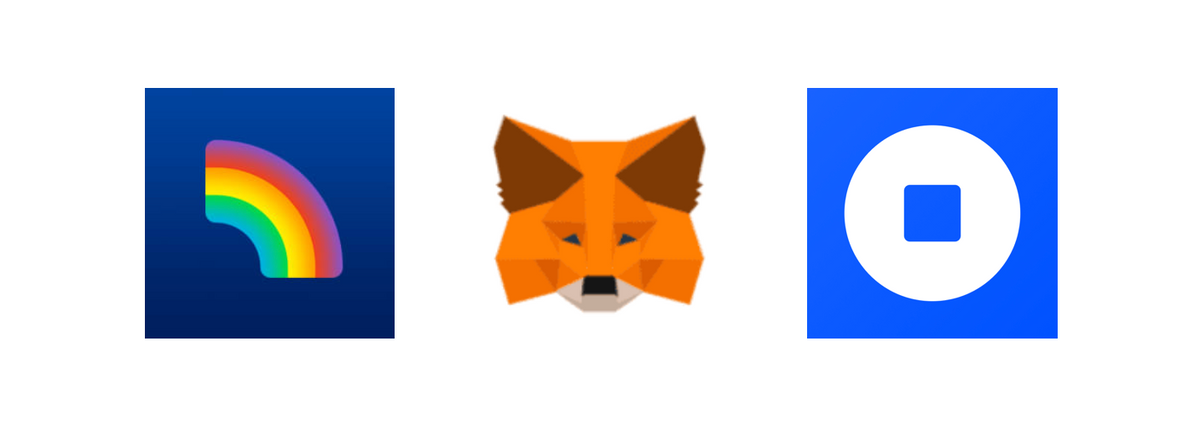
Hey all! Here's the latest "3-Things Weekly," an exclusive letter about 3 companies, ideas, communities, or people that are on my mind. Subscribe here for free.
It's clear to me that there's a lot of confusion about what a wallet is, what's the difference between them, why it's different than an exchange, and how everyone can use them today and in the future. My goal with this post is to get you to download a wallet, start messing around, and understand why this could be the future of how you log in to the internet, own everything digital and protect yourself.
TL;DR: Some quick thoughts about wallets. Then I'll share 3 "web3" wallets that anyone can use to buy, store, trade NFTs, Tokens, log in to DApps, products, and services, and much more.
- Some thoughts about wallets, then a dive into my 3 favorites...
- Rainbow - An Ethereum based wallet
- Coinbase Wallet - Coinbase's wallet product for BTC, ETH, and more
- Metamask - A Chrome extension to use your wallets easily in the browser
Wallets
I'll start with this kinda bold statement: You should have a wallet and you should be learning how to use it.
Wallets fundamentally change how we use the web. A wallet is as fundamental as your email login, Facebook login, online bank account (but the wallet is the bank), and your personal website... all-in-one.
Except you own it. No one can take it from you. Just never lose your seed phrase. (the biggest thing to remember is this: because you own it, it can never be taken from you, there's no centralized authority... this means there's NO PASSWORD RESET... Lose your seed phrase, lose everything you own in that wallet...)
What is it?
A wallet is how you store your digital assets, logins, and information. The difference is that you own it, not someone else. It has a public address (that you can share with anyone you want to send assets to this wallet or view the wallet) and a private key. NEVER SHARE YOUR PRIVATE KEY. EVER. TO NO ONE. EVER. DID I SAY NEVER SHARE IT? Also, never lose it. Buy a steel case and put it in 3 safes.
In the past, Facebook login was owned by Facebook. When you create a login with a company, they have your password and username. We know how that story ends when your password is leaked in a data breach. If your bank goes insolvent, or say an exchange gets hacked for $195m like yesterday, you don't actually own the money or tokens. You have an IOU from the bank and exchange to pay you. Most are FDIC insured but it's good to remember that you don't own your money. If the government decides to shut down an exchange, you don't own those tokens either.
As they say in web3, "not your keys, not your tokens." As my friends in Tennessee say, bury some gold bars outback. Same thing lol.
It's also your login to web3. When you go to Opensea.io, or uniswap.org, or any other web3 social network like gm.xyz, this is your login. Simply use the QR code scanner to log in with your wallet.
Why am I excited?
This changes how we use the web.
Today, we wander around the web and try to remember our login to every different service we use. That centralized company or product stores all types of different information about us and we have no control over that data. Every time we try a new service, we basically start over from zero and have to create a new login, upload new information, and try to understand what we wanna share with that service.
With a wallet, we use the same wallet to log in to different products and services. This changes everything.
I own my login, I decide what to share, everything I own I carry with me across the web vs giving that value to each individual service or company.
The implications of this are massive. Kinda hard to explain how different using the web will be if we all log in to the internet using wallets instead of different logins/passwords as we do today.
Where could this go in the future?
If our wallet is our identity, it's also what we own, this becomes our key to unlocking different parts of the web. And real-life.
Tickets to events are the first use case that makes so much sense. When a unique ticket can be shared, tracked, and share economics digitally, the entire middle layer and scalper market die. Artists will sell tickets for $20 and also make 10% of the ticket price every time it re-sales. Imagine 10 buyers later, someone buys it for $400. They would make double on the $400 sale vs the original ticket price in this scenario. But, they would also make 10% on the other 9 resales as well. That's $20 on the initial sale, and 10% on each of the other 0 resales. This one ticket could easily make an artist $100-$150 per ticket based on the secondary sales.
This changes the entire economics of events, solves all problems of copied PDFs & QR codes, and gives massive benefits to the creators of events to benefit from secondary sales vs fight and fear it. Let alone the insane fees that Stubhub charges. The wallet owns your ticket. There is verified proof that there's only one of each ticket. I can imagine Apple Wallet plugging into the blockchain someday in the future.
Wallets change online communities too. Aligned incentives, community ownership.
We are already seeing this with services like fwb.help or gm.xyz.
FWB is like if the SOHO house was built online and everyone who is a member is also an owner. I imagine every golf club or membership club starts online like this and then funds their offline goals. (it's technically a DAO).
The way it works is simple: To access the community, you have to have 75 $FWB Tokens in your wallet.
What you own in your wallet becomes the keys to what you can join on the web.
Take gm.xyz, it's basically Reddit. Except, subreddits require you to own the token or NFT for that group. It aligns incentives so the people who can talk also have skin in the game.
Since I own ENS tokens, I can sign in with my wallet and join the ENS community discussion. Simple as that.
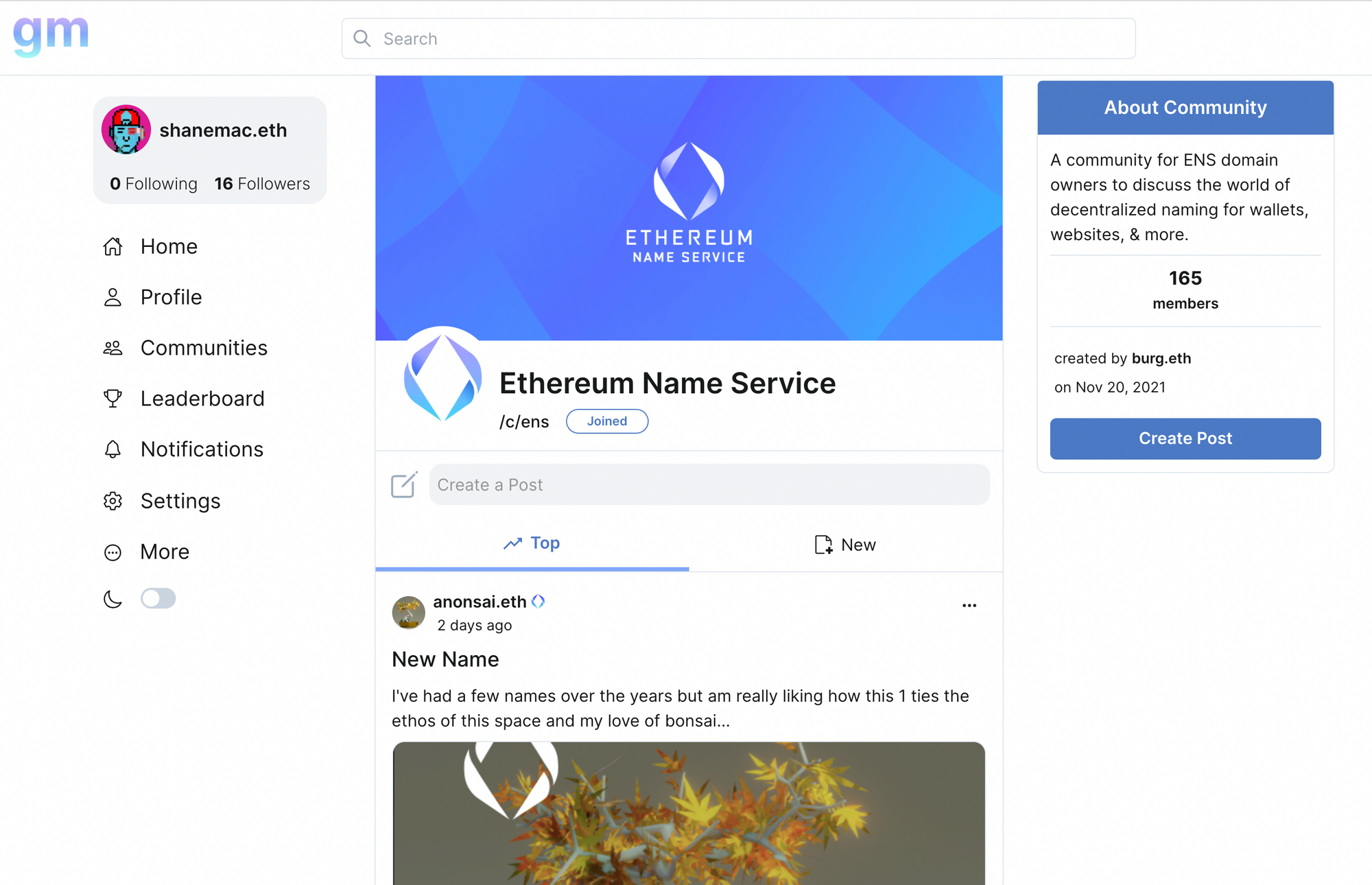
This takes me to something that I believe might be the biggest thing about wallets: Identity.
More specifically: Everyone owns their own identity. Facebook won by owning and creating your online identity, it's time to get our control back.
One thing that surprises people is that your wallet address is public. Everything on the blockchain is public. This can scare people. Which is fair, it's scary at first. So was putting photos about yourself on social media. There are benefits and risks to be aware of for sure.
I think you'll have different wallets in the future the same way you have different networks and identities today across social, messaging, banking, etc. You already need different wallets for different blockchains as you'll see below. Some work only with Ethereum, others work across multiple chains.
Know this though: Once you share that you are this wallet address, that is forever known. On top of that, if a wallet address that is known sends anything to your wallet address, that too will always show the connection between that known wallet. A quick lookup on Etherscan instantly shows everyone that I've interacted with in the past. Who I've sent money to, how much, and what NFTs I've bought from whom.
Side rant about NFTs...People are really confused and making fun of NFTs while also loving Bitcoin. Most people don't realize that NFTs are actually a Token. A Non-fungible TOKEN. It's just that there's only ONE TOKEN.
Think of it like this: Owning a Token is like owning a share of stock in Apple. You don't care which share of stock you own because all shares of stock are created equal. They are all the same. That's Bitcoin and Ethereum. You don't care which token you get as long as it's Bitcoin. Owning an NFT is like owning the stock certificate of the Mona Lisa. There's only one of them, it's the only one that has value, and it better be verified so no one can copy that piece of stock and sell one of the millions of duplicate Mona Lisas. Both are Tokens, one is like company stock and one is like the stock for the 1 thing it owns.
Ok, sorry, had to clear that up... Back to wallets.
I believe there's massive value in having a public wallet and a private wallet and being very intentional about keeping them separate. (You would connect your ENS domain to your public wallet you want people to discover. For more about ENS, check out my post from last week.)
If the social web was about usernames and followers, web3 is about what you own and what communities you're apart of.
We know that what you own is your key to unlocking communities on the web, it's also your way to discover and be discovered by people with similar interests.
Let's take a look at my co-founder Matt Galligan's wallet. Just look up his ENS Domain: matt.galligan.eth. If you go to rainbow.me and type it in, it shows up. (you can use ENS domains or any public key)

I can see that he holds a good amount of Ethereum, he has a Bored Ape, and he's involved with tons of NFT projects. He's also a member of FWB which I mentioned above.
This can be amazing. Be aware that it is public and know it can unlock all kinds of opportunities for you.
Many people ask me "why would you want someone to know what you own in your wallet?" I simply respond "why do people want you to know what type of car they drive or wear a ROLEX?"
As online identity and status have become more powerful than offline status, many people will use their public wallet address as a "flex wallet" to show off all the things they own and how much they are worth. Not saying that's good or bad, I think it's just exactly as it always has been.
Instead of people gaining influence and status with followers or blue checkmarks, it will be because of what you own, what communities you are a member of and the value of it.
Marketing will change too because of this. Today marketers go after influencers, tomorrow they go after owners they find from wallets.
Here's a common example happening already: In web3, everything is public to discover what address owns what. If I was going to launch a new product and I wanted everyone who owned a Bored Ape to know about it, I could Airdrop (the term for sending something to their wallet) them some tokens or NFTs so they would know about our new product or service.
The future of marketing is about making people owners right out the gate vs just trying to get them to like or follow something. It's ultimately about aligned incentives. It drives word of mouth unlike anything I've ever seen before. ENS just did this for all members who bought their domain name before they launched their token. It's basically as if a company like Twitter sent little bits of stock to the first 500k people who registered usernames with their service. Of course, they would be more invested and tell more people about it. That's a new unlock and secret of web3 marketing. It's about creating ownership, not just awareness.
There's so much benefit in web3 to having a public wallet and sharing the things you own that you personally care about. I don't personally think about it as a Flex wallet, I store all of my main assets in a wallet that I don't share with anyone. I use my public wallet (shanemac.eth) to join communities and share what I'm proud to own.
In the future, you will be able to message a wallet address like you can email someone's website address today. That's what we are working on at XMTP.com.
In web2, if you were really early to try a product or service, maybe it got you a lot of followers or made you feel smart amongst your friends for knowing about Snapchat early. In web3, you quite literally can get rewarded with tokens for being an early user and contributor.
I haven't felt something this fundamental in how the web works since I logged into a social network in 2005.
It really does change everything about how we think about the internet working and I think everyone needs to feel it to understand it. Go grab a wallet, put a little ETH in it, and start learning how this will unlock the next version of the web.
When you start logging into the web without a password and your wallet brings everything with you around the web to new services, it will change how you see using the web. You bring your stuff with you vs services taking everything from you.
Welcome to web3. Here are the 3 wallets I use below and the quick bullets on what it is, why I like it, and a cool thing to try with it...
Rainbow
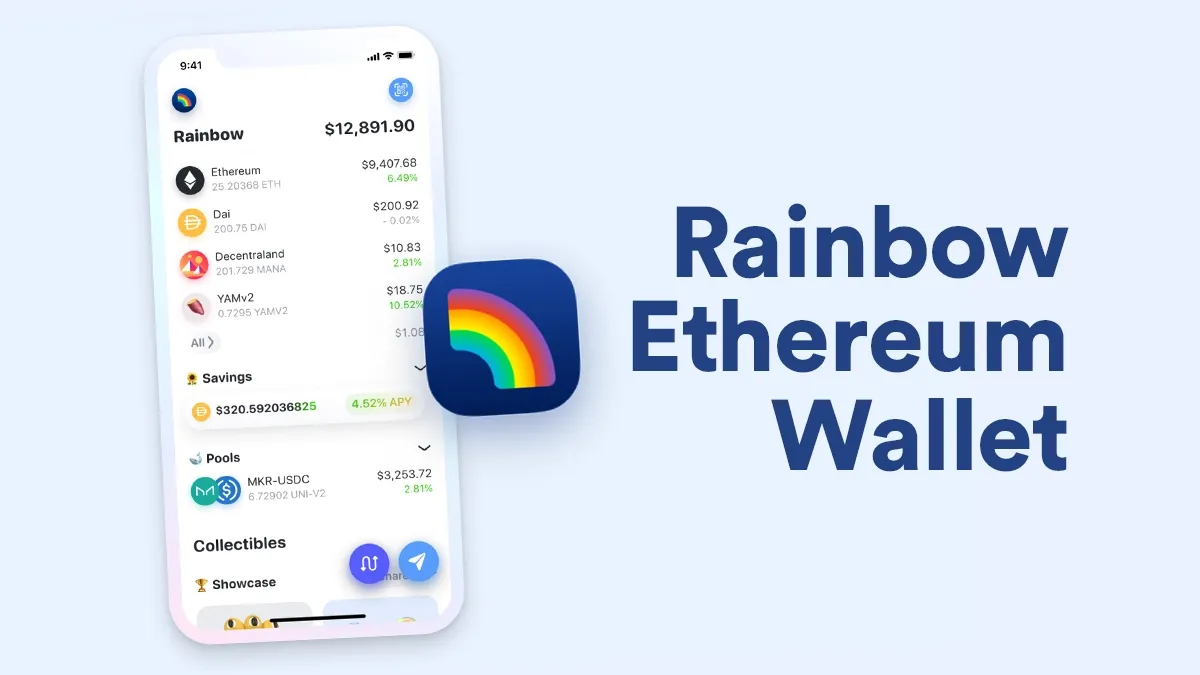
What is it?
It's an Ethereum wallet. It's great for logging into websites using QR codes, sending and receiving NFTs, and buying Eth-based tokens.
Why I like it and use it?
It's the wallet that feels most like a social wallet. I use this for my public address that I tie to my ENS Domain shanemac.eth. It's a very fun and UX-friendly iOS app.
They also have public profiles so you can show off what you own and see others' wallets. Check out the founder of Figma, Zoink.eth, profile: https://rainbow.me/zoink.eth
What's a thing to try with it?
Download and set up Rainbow. (Save your private key) Use an exchange like Coinbase.com to buy a little bit of Ethereum. Send that ETH to your Rainbow Wallet Address.
Go to ENS.domains and buy your .ETH domain name. This process will show you how the wallet works with websites and the process to sign your interactions and interact with the blockchain. It feels weird at first but it gets easier as you do it more. (Quick note: Click "Wallet Connect" to find the Rainbow app for login)
Coinbase Wallet

What is it?
Coinbase Wallet is a general-purpose wallet. It is not Coinbase.com. Think of Coinbase.com as an exchange and bank to buy tokens. If you store them on Coinbase.com, it's like using a bank. You don't own the tokens, you have an IOU with Coinbase for those tokens much like you have an IOU with your bank for your cash. Coinbase Wallet is a different product and if you send your tokens from .com -> Coinbase Wallet, then you own them forever and no one can take those from you if anything ever happens to Coinbase.
You can use it to store Eth, but also BTC and other tokens. It's also an NFT wallet but I don't use it for that yet. I use Rainbow for that.
This is powerful for storing assets and owning them in case something happens to the exchanges.
Why I like it and use it?
It's a great place to store Bitcoin and other tokens besides ETH. It's also digital so if you need those tokens you can send and receive them easily.
What's a thing to try with it?
If you have tokens sitting in Coinbase.com, try sending them to the wallet. This teaches you the power of owning your keys, owning your tokens.
Reminder for 10th time: Save, store, and never share your private key. Lose your key, lose your tokens.
Metamask
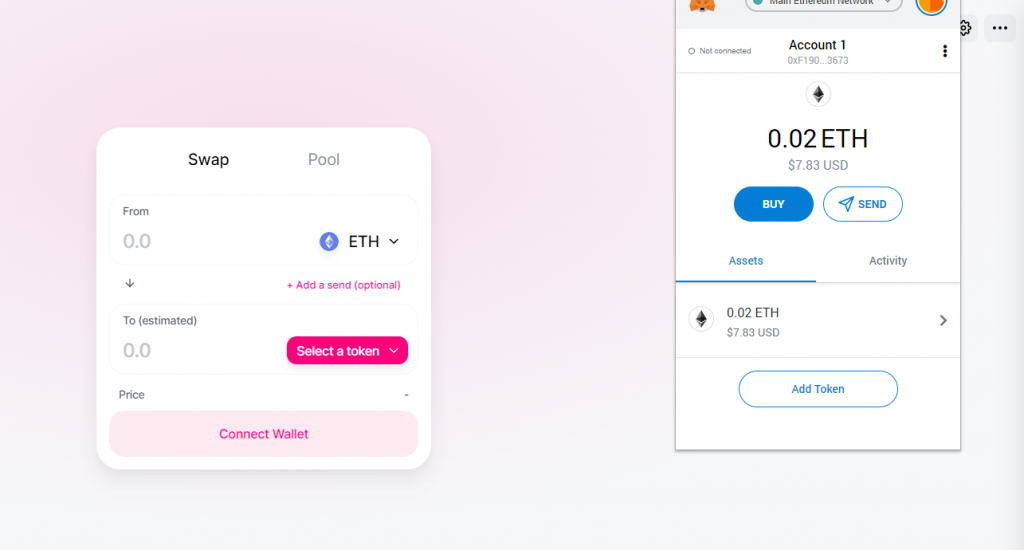
What is it?
Metamask is a Chrome plugin that makes using your wallet dead simple in the browser. It also allows you to connect any other wallet to it. Ex. My Rainbow wallet is the wallet I connected to Metamask. It makes it much easier to use in Chrome but I'm actually using the tokens and NFTs from my Rainbow wallet.
Why I like it and use it?
It makes using the desktop browser much simpler. It's a great login and aggregator layer wallet.
What's a thing to try with it?
Connect your Rainbow wallet to Metamask and then log in to some websites with Metamask.
Bonus wallet: Ledger
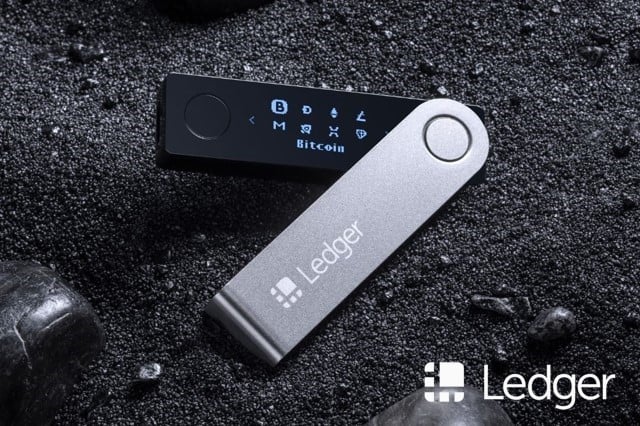
What is it?
Ledger is a hardware wallet. The 3 wallets above are all software wallets. Ledger is the safest way to store the tokens that you don't need to access frequently.
I recommend everyone have a hardware wallet, set it up, and understand how it works. I use 2 that are copies of each other, store them in separate places in case you ever lose one.
This is the most secure way to store your tokens.
Why I like it and use it?
Having a physical device that is the key to unlocking your wallet is the safest way to store your tokens. Long-term investments can live here.
Ledger also has Ledger Live which is a new online service to access the hardware wallet. Makes accessing your assets easier.
What's a thing to try with it?
Buy some tokens you want to hold for 5 years. Put them on a Ledger, save the private key on a Crypto Steel, put them in a safe and if Bitcoin really is worth $1m a token in 5 years then you win.
Stay Safe. A few reminders to end:
- It's so early. Be careful, this is real money and there are many risks when there are no backup plans and rampant scams happening.
- Never share your private key, never lose it. Never forget this.
- Be careful when scanning QR codes or logging into services. If you give the wrong service access to your wallet, they can steal what's in your wallet. There's no way to get things back in this world. The bank can't lose your tokens but they also can't help you get them back either. You are truly on your own. Be careful. Go slow. If it seems sketchy, it probably is.
Welcome to web3. Grab a wallet and let's go.
Please say hi anytime, just hit reply, and feel free to forward this email to anyone who you think would be interested in learning about new companies and ideas I'm interested in. Also, feel free to share http://blog.shanemac.com on social networks if you like what you're reading.
Talk soon,
*Disclaimer: This is not investment advice and I will always disclose if we are an investor. Have a great week.

